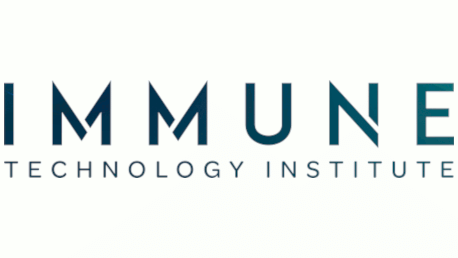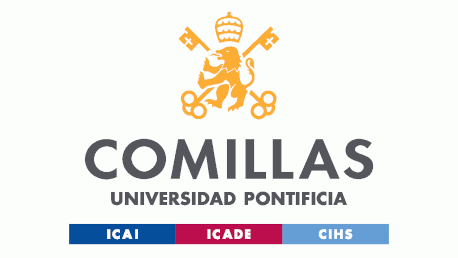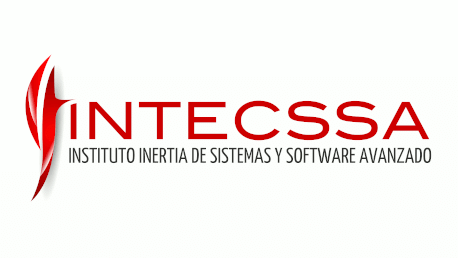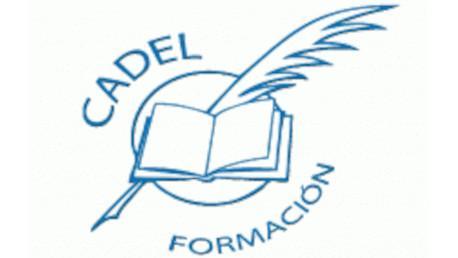Máster en Investigación Forense y Gestión de Incidencias. CHFI
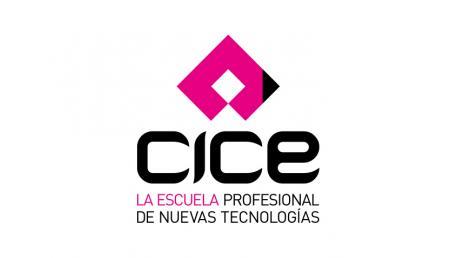

Si has realizado este curso, ¿por qué no darnos tu opinión?. Si lo haces, estarás ayudando a miles de personas que, como tu en su momento, están intentando cambiar su vida a través de la formación. No hay mejor ayuda, para decidirse entre miles de cursos, que la opinión de una persona que ha vivido la experiencia de cursarlo, miles de personas te lo agradecerán.
Danos tu opinión detallada sobre el Máster en Investigación Forense y Gestión de Incidencias. CHFI. No olvides decirnos que te pareció el temario del curso, el profesorado, la accesibilidad al equipo del centro para resolver tus dudas y, en el caso de los programas online, la calidad del campus virtual.
El Máster en Investigación Forense y Gestión de Incidencias se imparte en modalidad PRESENCIAL en MADRID y ONLINE. ¡RESERVA TU PLAZA AHORA!
Consigue la habilidad necesaria para la identificación de las huellas del intruso y reunir las pruebas para su procesamiento
El Máster en Investigación Forense y Gestión de Incidencias proporciona la metodología del análisis digital forense y de la evidencia o prueba informática. Este programa concede al alumno la habilidad necesaria para la identificación de las huellas del intruso y reunir las pruebas para su procesamiento.
La trasformación digital está cambiando los modelos de negocios y revolucionando la forma de interactuar entre las empresas existentes y el entorno. Las organizaciones que están adoptando dicho cambio y utilizando tecnologías digitales como cloud, mobile, big data e IOT, están viendo como el contexto de la investigación digital forense y la gestión de incidencias digitales es más relevante que antes y cada vez cobra un papel más fundamental en el organigrama organizativo.
Al finalizar el curso, los alumnos podrán presentarse a los exámenes de certificación oficial de EC-Council:
-Hacking Forensic Investigator
-Incident Handler
SALIDAS PROFESIONALES
Tras la formación de CICE el alumno podrá desempeñar su actividad profesional como:
-Forense informático
-Consultor en seguridad informática
-Auditor de seguridad informática
-Investigador forense
-Analista de riesgos de seguridad
-Probador (Tester) de la seguridad de sistemas
-Gestor de Incidencias
POR QUÉ ESTUDIARLO EN CICE
-CICE es un centro de formación oficial de EC-Council.
-CICE es un centro de formación oficial de CompTIA especializado en seguridad informática.
-Hacemos la entrega de la documentación oficial.
-En CICE te damos de alta en la plataforma de EC-Council en la que tendrás acceso al material oficial online para preparar la certificación.
-Ofrecemos a nuestros alumnos la preparación específica para los exámenes de certificación de EC-Council.
-CICE es un centro oficial certificador de VUE y de EC-Council.
-Nuestros alumnos pueden realizar prácticas ilimitadas y gratuitas en las instalaciones de CICE fuera de los horarios lectivos.
-Nuestros alumnos podrán realizar los exámenes de certificación en las instalaciones de CICE y obtendrán un certificado de validez internacional, único y reconocido.
-Acceso libre y gratuito a la Bolsa de Empleo y Carreras Profesionales.
-Contamos con Becas, promociones y descuentos exclusivos para nuevos y antiguos alumnos.
-Repositorio de todas las clases grabadas a disposición del alumno.
CERTIFICACIONES QUE PUEDES OBTENER
-Certificación propia CICE
-Diploma Acreditativo de CICE
-Certificación de EC- COUNCIL (Incident Handler) Examen ECIH 212-89
-Certificación de EC- COUNCIL (Hacking Forensic Investigator) Examen CHFI v9
El plan de estudios asume que los estudiantes tengan:
-Conocimientos previos de informática a nivel de usuario medio
-Buena capacidad de lectura y expresión escrita en inglés
-Deseo de aprender el programa de estudios
-Disponer de horas adicionales (entre 5 y 10) a la semana para realizar ejercicios
-Disponer de un manejo fluido de internet
-Es necesario, disponer de conocimientos de Redes
-Es necesario, disponer de conocimientos de Programación
-Es necesario, disponer de conocimientos en Ciberseguridad
El programa de estudios está orientado a formar a todas aquellas personas interesadas en formarse y certificarse como expertos en Investigación Digital Forense y Gestor de Incidencias, así como a:
-Responsables de red informática o responsables de seguridad informática.
-Profesionales, administradores y responsables de áreas de informática y comunicaciones en ámbitos empresariales, comerciales, industriales, académicos y del sector público.
-Consultores y asesores en las áreas de informática, comunicaciones, sistemas y demás áreas relacionadas con la seguridad de los sistemas y la información.
-Administradores de sistemas, agentes de seguridad, profesionales de la seguridad informática y de redes.
-Cualquier persona que esté preocupada por la seguridad de la red, las investigaciones digitales, la gestión de incidentes y sus respuestas.
En el máster aprenderás los principales escenarios de investigación forense que te permitirá adquirir, por un lado, la experiencia práctica en varias técnicas de investigación forense y los conocimientos sobre las herramientas necesarias para llevar a cabo con éxito la investigación forense informática que conduce a la detección del atacante. De este modo el alumno conocerá todas las etapas del análisis que incluye la búsqueda y captura, la cadena de custodia, la adquisición, la conservación, el análisis y la exposición de informes de la evidencia digital.
Además te proporcionará las habilidades necesarias para manejar y responder a los incidentes de seguridad informática en un sistema de información. Abordando varias técnicas para detectar y responder a amenazas de seguridad informáticas actuales y emergentes.
A. EC-Council Certified Incident Handler Program (Módulos 1-11) B. EC-Council Computer Hacking Forensic Investigator (Módulos 12-25)
Módulo 01: Introduction to Incident Response and Handling
-Cyber Incident Statistics
-Computer Security Inciden
-Information as Business Asset
-Data Classification
-Common Terminologies
-Information Warfare
-Key Concepts of Information Security
-Vulnerability, Threat, and Attack
-Types of Computer Security Incidents
-Examples of Computer Security Incidents
-Verizon Data Breach Investigations Report – 2008
-Incidents That Required the Execution of Disaster Recovery Plans
-Signs of an Incident
-Incident Categories
-Incident Prioritization
-Incident Response
-Incident Handling
-Use of Disaster Recovery Technologies
-Impact of Virtualization on Incident Response and Handling
-Estimating Cost of an Incident
-Key Findings of Symantec Global Disaster Recovery Survey – 2009
-Incident Reporting
-Incident Reporting Organizations
-Vulnerability Resources
Módulo 02: Risk Assessment
-Risk
-Risk Policy
-Risk Assessment
-Steps to Assess Risks at Work Place
-Risk Analysis
-Risk Mitigation
-Risk Mitigation Strategies
-Cost/Benefit Analysis
-NIST Approach for Control Implementation
-Residual Risk
-Risk Management Tools
Módulo 03: Incident Response and Handling Steps
-How to Identify an Incident
-Handling Incidents
-Need for Incident Response
-Goals of Incident Response
-Incident Response Plan
-Incident Response and Handling Steps
-Training and Awareness
-Security Awareness and Training Checklist
-Incident Management
-Incident Response Team
-Defining the Relationship between Incident Response, Incident Handling, and Incident Management
-Incident Response Best Practices
-Incident Response Policy
-Incident Response Plan Checklist
-Incident Handling System: RTIR
-RPIER 1st Responder Framework
Módulo 04: CSIRT
-What is CSIRT?
-What is the Need of an Incident Response Team (IRT)
-CSIRT Goals and Strategy
-CSIRT Vision
-Common Names of CSIRT
-CSIRT Mission Statement
-CSIRT Constituency
-CSIRT Place in the Organization
-CSIRT Relationship with Peers
-Types of CSIRT Environments
-Best Practices for creating a CSIRT
-Role of CSIRTs
-Roles in an Incident Response Team
-CSIRT Services
-CSIRT Policies and Procedures
-How CSIRT Handles a Case
-CSIRT Incident Report Form
-Incident Tracking and Reporting Systems
-CERT
-CERT-CC
-CERT(R) Coordination Center: Incident Reporting Form
-CERT:OCTAVE
-World CERTs
-http://www.first.org/about/organization/teams/
-http://www.apcert.org/about/structure/members.html
-IRTs Around the World
Módulo 05: Handling Network Security Incidents
-Denial-of-Service Incidents
-Distributed Denial-of-Service Attack
-Detecting DoS Attack
-Incident Handling Preparation for DoS
-Unauthorized Access Incident
-Inappropriate Usage Incidents
-Multiple Component Incidents
-Network Traffic Monitoring Tools
-Network Auditing Tools
-Network Protection Tools
Módulo 06: Handling Malicious Code Incidents
-Count of Malware Samples
-Virus
-Worms
-Trojans and Spywares
-Incident Handling Preparation
-Incident Prevention
-Detection of Malicious Code
-Containment Strategy
-Evidence Gathering and Handling
-Eradication and Recovery
-Recommendations
-Antivirus Systems
Módulo 07: Handling Insider Threats
-Insider Threats
-Anatomy of an Insider Attack
-Insider Risk Matrix
-Insider Threats Detection
-Insider Threats Response
-Insider’s Incident Response Plan
-Guidelines for Detecting and Preventing Insider Threats
-Employee Monitoring Tools
Módulo 08: Forensic Analysis and Incident Response
-Computer Forensics
-Objectives of Forensics Analysis
-Role of Forensics Analysis in Incident Response
-Forensic Readiness
-Forensic Readiness And Business Continuity
-Types of Computer Forensics
-Computer Forensic Investigator
-People Involved in Computer Forensics
-Computer Forensics Process
-Digital Evidence
-Characteristics of Digital Evidence
-Collecting Electronic Evidence
-Challenging Aspects of Digital Evidence
-Forensic Policy
-Forensics in the Information System Life Cycle
-Forensic Analysis Guidelines
-Forensics Analysis Tools o Helix
Módulo 09: Incident Reporting
-Incident Reporting
-Why to Report an Incident
-Why Organizations do not Report Computer Crimes
-Whom to Report an Incident
-How to Report an Incident
-Details to be Reported
-Preliminary Information Security Incident Reporting Form
-CERT Incident Reference Numbers
-Contact Information
-Summary of Hosts Involved
-Description of the Activity
-Log Extracts Showing the Activity
-Time Zone
-Federal Agency Incident Categories
-Organizations to Report Computer
-Sample Incident Reporting Form
-Sample Post Incident Report Form
Módulo 10: Incident Recovery
-Incident Recovery
-Principles of Incident Recovery
-Incident Recovery Steps
-Contingency/Continuity of Operations Planning
-Business Continuity Planning
-Incident Recovery Plan
-Incident Recovery Planning Process
Módulo 11: Security Policies and Laws
-Security Policy
-Key Elements of Security Policy
-Goals of a Security Policy
-Characteristics of a Security Policy
-Design of Security Policy
-Implementing Security Policies
-Acceptable Use Policy (AUP)
-Access Control Policy
-Asset Control Policy
-Audit Trail
-Documentation Policy
-Evidence Collection Policy
-Evidence Preservation Policy
-Information Security Policy
-National Information Assurance Certification & Accreditation Process (NIACAP) Policy
-Physical Security Policy
-Physical Security Guidelines
-Personnel Security Policies & Guidance
-Law and Incident Handling
-Laws and Acts
-Intellectual Property Laws
Módulo 12: Computer Forensics in Today’s World
-Understanding Computer Forensics
-Why and When Do You Use Computer Forensics?
-Cyber Crime (Types of Computer Crimes)
-Case Study
-Challenges Cyber Crimes Present For Investigators
-Cyber Crime Investigation
-Rules of Forensics Investigation
-Understanding Digital Evidence
-Types of Digital Evidence
-Characteristics of Digital Evidence
-Role of Digital Evidence
-Sources of Potential Evidence
-Rules of Evidence
-Forensics Readiness
-Computer Forensics as part of an Incident Response Plan
-Need for Forensic Investigator
-Roles and Responsibilities of Forensics Investigator
-What makes a Good Computer Forensics Investigator?
-Investigative Challenges
-Legal and Privacy Issues
-Code of Ethics
-Accessing Computer Forensics Resources
Módulo 13: Computer Forensics Investigation
-Importance of Computer Forensics Process
-Phases Involved in the Computer Forensics Investigation Process
-Pre-investigation Phase
-Planning and Budgeting
-Physical Location and Structural Design Considerations
-Work Area Considerations
-Physical Security Recommendations
-Fire-Suppression Systems
-Evidence Locker Recommendations
-Auditing the Security of a Forensics Lab
-Human Resource Considerations
-Build a Forensics Workstation
-Basic Workstation Requirements in a Forensics Lab
-Build a Computer Forensics Toolkit
-Forensics Hardware
-Forensics Software (Cont’d)
-Forensic Practitioner Certification and Licensing
-Forensics Laws
-Quality Assurance Practices in Digital Forensics
-General Quality Assurance in the Digital Forensic Process
-Quality Assurance Practices: Laboratory Software and Hardware
-Laboratory Accreditation Programs
-Risk Assessment Matrix
-Investigation Phase
-Post-investigation Phase
Módulo 14: Understanding Hard Disks and File Systems
-Hard Disk Drive Overview
-Disk Partitions and Boot Process
-Understanding File Systems
-Metadata Files Stored in the MFT
-Setting the Compression State of a Volume
-Components of EFS
-EFS Attribute
-RAID Storage System
-File System Analysis
Módulo 15: Data Acquisition and Duplication
-Data Acquisition and Duplication Concepts
-Static Acquisition
-Validate Data Acquisitions
-Acquisition Best Practices
Módulo 16: Defeating Anti-forensics Techniques
-What is Anti-Forensics?
-Anti-Forensics techniques
-CmosPwd
-DaveGrohl
Módulo 17: Operating System Forensics (Windows, Mac, Linux)
-Introduction to OS Forensics
-Windows Forensics
-Linux Forensics
-MAC Forensics
Módulo 18: Network Forensics
-Introduction to Network Forensics
-Fundamental Logging Concepts
-Event Correlation Concepts
-Network Forensic Readiness
-Log Everything
-Keeping Time
-Use Multiple Sensors
-Avoid Missing Logs
-Functions of Log Management Infrastructure
-Challenges in Log Management
-Meeting the Challenges in Log Management
-Centralized Logging
-Syslog
-IIS Centralized Binary Logging
-Network Forensics Steps
-Use Signatures, Encryption, and Checksums
-Network Forensics Analysis Mechanism
-Analyzing Router Logs
-Evidence Gathering from ARP Table
-Analyzing Router Logs
-Analyzing Firewall Logs
-Analyzing IDS Logs
-Analyzing Honeypot Logs
-DHCP Logging
-ODBC Logging
-Network Traffic Investigation
-Sniffing Tool: Wireshark
-Display Filters in Wireshark
-Additional Wireshark Filters
-Sniffing Tool: SteelCentral Packet Analyzer
-Sniffing Tool: Tcpdump/Windump
-Packet Sniffing Tool: Capsa Network Analyzer
-Network Packet Analyzer: OmniPeek Network Analyzer
-Network Packet Analyzer: Observer
-Network Packet Analyzer: Capsa Portable Network Analyzer
-TCP/IP Packet Crafter: Colasoft Packet Builder
-Network Packet Analyzer: RSA NetWitness Investigator
-Additional Sniffing Tools
-Documenting the Evidence
-Evidence Reconstruction
Módulo 19: Investigating Web Attacks
-Introduction to Web Application Forensics
-Web Attack Investigation
-Investigating Web Server Logs
-Web Attack Detection Tools
-Tools for Locating IP Address
-WHOIS Lookup Tools
Módulo 20: Database Forensics
-Database Forensics and Its Importance
-MSSQL Forensics
-Collect the Evidences
-Examine the Log Files
-Analyze the General Log
-Take a Backup of the Database
-Create an Evidence Database
-Select the Database
-View the Tables in the Database
-View the Users in the Database
-View Columns in the Table
-Collect the Database and all the Logs
-Examine the .frm Files
-Examine the Binary Logs
-Retrieve the Deleted User Account
-ibdata1 in Data Directory
Módulo 21: Cloud Forensics
-Introduction to Cloud Computing
-Cloud Forensics
Módulo 22: Malware Forensics
-Introduction to Malware
-Introduction to Malware Forensics
-Malware Analysis: Static
-Malware Analysis: Dynamic
-Analysis of Malicious Documents
-Malware Analysis Challenges
Módulo 23: Investigating Email Crimes
-Email System
-Email Crimes (Email Spamming, Mail Bombing/Mail Storm, Phishing, Email Spoofing, Crime via Chat Room, Identity Fraud/Chain Letter)
-Copy and Print the E-mail Message
-Viewing Email Headers
-Received Headers
-Analyzing Email Headers
-Examining Additional Files (.pst or .ost files)
-Checking the E-mail Validity
-Examine the Originating IP Address
-Trace the E-mail Origin
-Validating Header Information
-Tracing Back Web-based E-mail
-Email Archives
-Content of Email Archives
-Local Archive
-Server Storage Archive
-Forensic Acquisition of Email Archive
-Deleted Email Recovery
-Examining E-mail Server Logs
Módulo 24: Mobile Phone Forensics
-Mobile Device Forensics
-Architectural Layers of Mobile Device Environment
-Android Architecture Stack
-Android Boot Process
-iOS Architecture
-iOS Boot Process
-Normal and DFU Mode Booting
-Booting iPhone in DFU Mode
-Mobile Storage and Evidence Locations
-Build a Forensics Workstation
-Build the Investigation Team
-Review Policies and Laws
-Notify Decision Makers and Acquire Authorization
-Risk Assessment
-Build a Mobile forensics Toolkit
-Mobile Phone Evidence Analysis
-Collecting the Evidence
-Document the Scene
-Document the Evidence
-Evidence Preservation
-Set of Rules for Switching ON/OFF Mobile Phone
-Mobile Phone Signal Containment
-Packing, Transporting, and Storing the Evidence
-Forensics Imaging
-Phone Locking
-Enabling USB Debugging
-Platform Security Removal Techniques: Jailbreaking/Rooting
-Mobile Evidence Acquisition
-Cellular Network
-Subscriber Identity Module (SIM)
-Logical Acquisition
-Physical Acquisition
-File System Acquisition
-SQLite Database Extraction
-Android Forensics Analysis
-iPhone Data Extraction
-Examination and Analysis
-Generating Investigation Report
-Mobile Forensics Report Template
Módulo 25: Forensics Report Writing and Presentation
-Writing Investigation Reports
-Expert Witness Testimony
-Testifying in the Court
-General Order of Trial Proceedings
-General Ethics While Testifying
-Importance of Graphics in a Testimony
-Helping your Attorney
-Avoiding Testimony Issues
-Testifying during Direct Examination
-Testifying during Cross- Examination
-Testifying during Cross- Examination: Best Practices
-Guidelines to Testify at a Deposition
Duración: 220 horas lectivas. Al menos 440 horas de dedicación HTA


